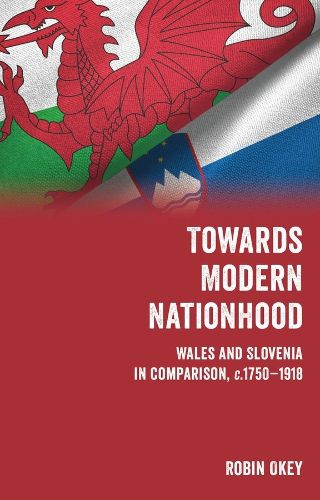Readings Newsletter
Become a Readings Member to make your shopping experience even easier.
Sign in or sign up for free!
You’re not far away from qualifying for FREE standard shipping within Australia
You’ve qualified for FREE standard shipping within Australia
The cart is loading…






A comparative history of nineteenth-century nationalist movements in Wales and Slovenia.
Towards Modern Nationhood is a comparative history of nineteenth-century national movements in two stateless countries, Wales and Slovenia. While these movements are often contrasted, Robin Okey reveals the shared strategies behind both western and eastern European nationalists. In both cases, activists organized around local identities that were legible to their occupiers. The Habsburg Empire respected multilingualism, so Slovenians mobilized behind their language. The British Empire respected religious pluralism, so the Welsh mobilized behind nonconformity. Ultimately, the stories of these two national movements make plain the surprising efficacy of soft power in the form of local traditions, languages, and religion.
$9.00 standard shipping within Australia
FREE standard shipping within Australia for orders over $100.00
Express & International shipping calculated at checkout
A comparative history of nineteenth-century nationalist movements in Wales and Slovenia.
Towards Modern Nationhood is a comparative history of nineteenth-century national movements in two stateless countries, Wales and Slovenia. While these movements are often contrasted, Robin Okey reveals the shared strategies behind both western and eastern European nationalists. In both cases, activists organized around local identities that were legible to their occupiers. The Habsburg Empire respected multilingualism, so Slovenians mobilized behind their language. The British Empire respected religious pluralism, so the Welsh mobilized behind nonconformity. Ultimately, the stories of these two national movements make plain the surprising efficacy of soft power in the form of local traditions, languages, and religion.